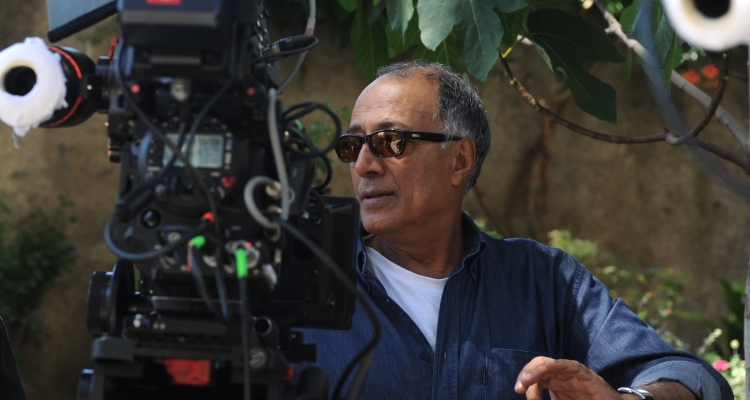There’s no other way to put it: Abbas Kiarostami is just a stone cold badass. The godfather of the Iranian New Wave only sleeps four hours a night, publishes two to three books of poetry a year, and he’s just opened an exhibition of photography at Aga Kahn Museum in Toronto, for which he created life-size prints of doors and built the frames himself. This is in addition to the feature films that he continues to shoot around the world. So don’t dare question what he’s been up to: the man can’t stop making things. He attributes this rapid creative generation to his “crucial, fundamental lifelong restlessness.”
While at the Marrakech International Film Festival to present a Master Class, Kiarostami discussed more of his upcoming film projects, as well as the filmmaking workshops in Cuba he’ll be attending next year.
READ MORE: The Films Of Abbas Kiarostami: A Retrospective
First and foremost, the news: Kiarostami is prepping for his next feature film, which will be shot in China. Currently using the working title of “Walking With the Wind” (which is also the name of a book of his poetry), the film will star an Iranian actress whom he declined to name, and an as-yet-to-be-determined cast of Chinese actors. The director plans to shoot in April and May, but he remained mum on other details about the project.
However, last year, actress Juliette Binoche (who starred in the director’s “Certified Copy“) revealed that the movie is about “a cleaning lady taking care of thousands of rooms in a big building.” Intriguing….
Of working in other countries (his last two films were shot in Italy and Japan), Kiarostami said that the drive for him to shoot outside of Iran was the experience of “going to new places and seeing what happens.” But there’s also an element of widening the accessibility of his work through crossing cultural boundaries. He said, “the world has related to my Iranian movies through subtitles, so if we think that film is a universal language, a universal art form, what’s the role of language or cultural specificity, I wonder?”
He’s thought deeply about the language of film, saying “when I was shooting in Iran, you would relate to my films through subtitles, so I thought what if now, have to relate to my films through subtitles?” He even half-joked that, “last month they dubbed ‘Certified Copy’ into Persian, and I went to see it and for the first time I realized what my actors were saying and what the film was about, until then I didn’t know.” These pushing of cinematic and cultural boundaries inspired him to see just how universal film language can be. The only promise he made was to “not make any cultural error, so that no one realizes that the film is made by a foreign crew. I think I got away with it for the last two, and we’ll see what happens in China.”
Additionally, Kiarostami has been busying himself with the making of 24 four-and-a-half minute short films shot in and around his home in Iran. He’s completed 18, with the remaining six in progress. Kiarostami stressed that the short format was simply the one that fit the ideas he had best, saying, “the length comes naturally from the subject itself.” As to the number of films, he said, “24 is a golden number that you see very often, but the one that mattered most to me was 24 frames.”
In February, Kiarostami will head to Cuba for filmmaking workshops with upcoming directors, but the international art cinema vet stressed that he had no intention of teaching or mentorship, but rather that he was relishing the opportunity to become a student again himself. “For me, this workshop is a unique opportunity to officially go back to the position of a learner, because I make films with them,” he explained. “For me, this is the only possibility to become a non-professional again and to refresh my own gaze toward cinema, and to see how we can export new ways of expressing ourselves.” He stressed the personal nature of directing, of the individuality of artists: “their direction is theirs — they have to start the movement. They have to go on their own journey, all I can do is to try and make them not lose track of their own journey, not mine.”
Despite his reluctance to take on a teaching role, it’s clear that we all have a lot to learn from Kiarostami in terms of his incredible output, and his deeply self-reflective and philosophical attitude towards himself and his own work.

